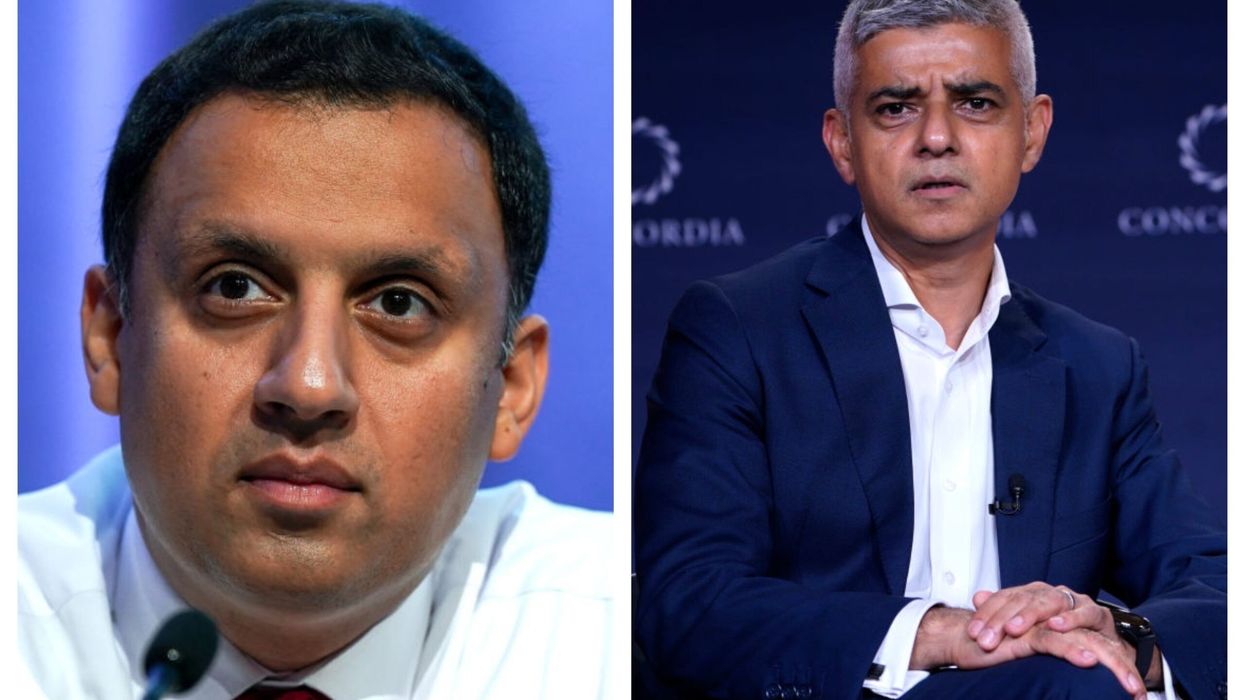TWO senior Muslim politicians in Labour have urged party leader Sir Keir Starmer to call for a ceasefire between Israel and Hamas.
Revealing the growing unrest within the opposition party over its position on the conflict, London mayor Sadiq Khan called on Friday (27) for a ceasefire in the conflict.
Scottish Labour leader, Anas Sarwar, also echoed Khan's call for a ceasefire.
On Wednesday (25), Yasmin Qureshi, the shadow minister for the equalities office, called for a ceasefire. Imran Hussain, shadow minister for the future of work, made the same appeal on Friday.
Sir Keir has been witnessing growing pressure within as 49 of the party's MPs said that they want a ceasefire.
Khan went a step beyond his party's appeals for a humanitarian pause in fighting to allow aid into the Israeli-besieged Gaza Strip.
The London mayor said he backed Israel's right to defend itself - but cautioned that a military escalation could worsen a humanitarian crisis in Gaza.
"I join the international community in calling for a ceasefire. It would stop the killing and would allow vital aid supplies to reach those who need it in Gaza," Khan said in a video posted on X, formerly Twitter.
Adding pressure on Sir Keir, Sarwar also joined the call for a ceasefire.
"There have been too many innocent lives lost in Israel and Palestine. We need a ceasefire now," Sarwar, the first Muslim to lead a mainstream political party in the UK, said on X.
“We need a proper peace process, because sadly right now there is no peace and there is no process. That’s the only way we can see a safe, secure and free Palestine, and a safe, secure and free Israel."
Among the 199 current Labour MPs, 49 have either voiced their support for a ceasefire or have endorsed a Commons motion advocating for one, the Guardian reported.
Meanwhile, some Labour politicians, especially Muslim MPs and councillors, were angered by comments Sir Keir made earlier this month that were interpreted to mean he backed Israel's right to cut off power and water to Gaza.
His spokesperson later clarified that he had meant Israel had a right to defend itself, but people in Gaza needed access to water and power.
One Labour MP from the north said he received hundreds of emails in the past week from voters complaining about the way Sir Keir had handled the situation.
"The tone has been completely wrong. We look indifferent to innocent people being bombed in Gaza," the MP said.
Sir Keir, with his deputy, Angela Rayner, met more than a dozen Muslim Labour MPs on Wednesday. They expressed concerns that his stance on the conflict was causing distress within the party.
Attendees at the meeting emphasised that the disappointment extended beyond being solely a "Jewish-Muslim community issue."
Following an interview on LBC, several Labour councillors resigned from the party. Additionally, 150 other councillors co-signed a letter to Sir Keir and Rayner, requesting Labour's support for a ceasefire.
Sir Keir has also been accused of allegedly “distorting” facts regarding a meeting with Muslim leaders in Cardiff. The South Wales Islamic Centre described the meeting as tense and asserted that the Labour leader’s subsequent tweets were inaccurate.
(with inputs from Reuters)





